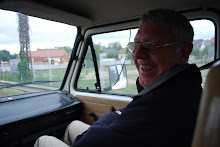One of the more well-known problems with Communism was the hostility toward religion. The Communist party wanted to create a "new man," whose loyalties were to the state. Religion, obviously, was not compatible with this new ideology. The Communist governments used a number of tactics to harm the Church and limit its influence. Christian education, as a result, was targeted by the government and suffered greatly under Communism. The government seized schools and turned many of them into state-run operations. Religious instruction was only permitted to come from certain people, and only within the church itself. Religious elective courses were often not available in the state schools and those who signed up for the instruction were often discriminated against later on, when applying for scholarships or admission into higher levels of education.
After the fall of Communism, religion and religious instruction was no longer illegal. However, the church was in such a state of disrepair from years of neglect, lack of funding, and a loss of parishioners that it was not able to quickly regain the same place it had in pre-Communist Eastern Europe.
After the fall of the state, there was (and, in many cases, still is) a lot of confusion about property rights. Schools that were seized during Communism were all of a sudden in a state of limbo. Would they continue to be public, state-run schools? Would they returned to their former owners? No one was sure about what to do with these buildings. A lack of funding has also been problematic. With the decrease in church attendance during Communism, naturally, came a lack of church income. In many congregations, attendance is still lower than the pre-Communism attendance and many churches still lack funding. Religious schools, as a result, are not always adequately funded.
Even though religion and religious education is freely allowed, it is not a priority for many people, and there is still seems to be a struggle for government recognition. While we were in Ukraine, we visited a girls' dormitory at one of the Reformed high schools. The school needed a dormitory. The government deemed an old, run down, community health center as a suitable building. Community members and church organizations volunteered their labor and materials and slowly turned the health center into the dormitory. The building is now a comfortable place for students to reside. The government did not care about the building before, but now that it has been restored, they want it back. This is a huge blow to the school, which cannot afford to build another building. Even though it is now freely permitted to operate religious institutions, it is clearly not being encouraged by everyone, and many Christian schools will continue to struggle until they receive the help, financial or otherwise, they need.

1 comment:
精彩的部落格 值得一推再推 支持你..................................................................
Post a Comment